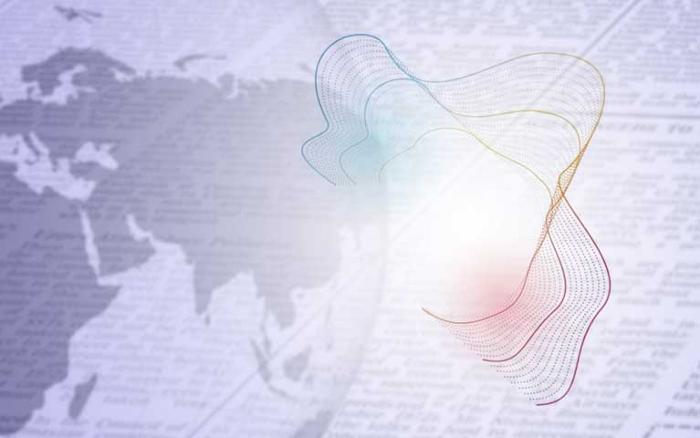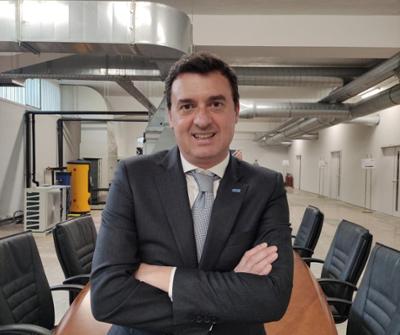

Nuno Roque: APIRAC to acquire experience for the benefit of Portuguese operators at C&R 2025
Nuno Roque, CEO of APIRAC, emphasizes that “companies are called upon to offer more energy-efficient solutions without the use of fossil fuels.” APIRAC is part of the C&R 2025 Organizing Committee.
The refrigeration, air conditioning and heat pump sector is fundamental to the well-being of society, but 75% of buildings in the European Union are still energy inefficient, warns Nuno Roque, CEO of APIRAC, a Portuguese association of companies in the thermal, energy, electronics and environmental sectors and a member of the C&R 2025 Organising Committee.
What does APIRAC stand for and what value chain does it represent?
APIRAC's association movement represents 530 members. We are a transversal and vertical sector association, with members from across mainland Portugal and the islands, from all segments of activity of the business chain and of various sizes, as we enter a new phase in our history. The sector's value chain is worth €3 billion, or 1% of GDP, accounting for 25,000 jobs and 3% of national machinery exports. These are thousands of market players focused on reducing energy consumption, improving performance, being environmentally responsible and ensuring end-customer satisfaction.
How has the refrigeration and air conditioning sector in Portugal developed in recent years?
The year 2024 was generally one of stagnation; however, previous years, especially the immediate post-pandemic period, saw remarkable growth, in the region of 60%. The last five years have seen growth in different categories, with particular emphasis on the heating market segments. There were significant increases in the marketing of compact tank heat pumps (CHP) and air-to-water heat pumps (AHP). In the ventilation segment, AHUs and stand-alone air-to-air heat exchangers are leading the way. In terms of direct expansion, special emphasis should be placed on mono-splits (≤ 7 kW), multi-splits and water-to-air VRF equipment. Among hydronics, the increase in water-to-water chillers is notable.
What are the main obstacles that air conditioning and refrigeration businesses will face in 2024?
The refrigeration, air conditioning and heat pump sector is indispensable and fundamental to the well-being of society, but 75% of buildings in the European Union are still energy inefficient. Buildings, which are made up of various technical systems, account for 40% of energy consumption in the EU and are responsible for 36% of CO2 emissions. For this reason, companies are called upon to offer responses that address these impacts and aim for more energy-efficient solutions, without the use of fossil fuels. Technological solutions are being developed to best meet the demanding challenges faced by industry and business. From an environmental point of view, heat pumps will be the most cost-effective and neutral form of heating and cooling, although they remain a costly investment for consumers.
What challenges do installation and service companies face?
The transition of refrigerants marks a stage in the evolution of the sector and its technological applications. This means that the industry must be trained, certified and equipped for a future without F-gases from 2030 on. Given the rapid technological advances, we can expect the work of the installation, maintenance and support segment to evolve considerably, with this technology supporting designers, manufacturers and distributors, helping to establish and maintain a high level of equipment operational performance.
This development is accompanied by a growing need for personnel. However, attracting and retaining talent is a challenge. At the same time, skills need to be regularly upgraded to keep pace with rapid technological developments. The success of the sector depends on skilled and adaptable professionals, at all levels of technical and operational development, especially engineers and mid-level technicians. As climate change and technological advances reshape the sector, it is crucial to ensure that these professionals have access to training, certification and professional growth.
What role do environmental hygiene and indoor air quality companies play?
No one can claim ignorance of the inherent consequences of poor air quality inside buildings. It is an issue that has been studied and referenced by leading health organisations worldwide for many years. Poor indoor air quality (IAQ) poses serious health risks, especially for children and the elderly. It also entails direct and indirect costs, such as increased health expenditure and reduced productivity of the European workforce.
Policymakers consider outdoor air quality so important that 19 of the 27 EU countries have incorporated a healthy environment into their constitutions as a fundamental right. However, it is often forgotten that the need for good air quality is not limited to outside our homes, but also includes the air we breathe indoors, where we spend up to 90% of our day. Several recent scientific studies indicate that the air inside homes and other buildings may be even more polluted than the air outside, especially in larger, industrialised cities.
Adequate ventilation is a tool that has been available and well-known for decades, not only as part of the response to the Covid-19 public health situation, but also for any other pathogens, regardless of the strain, or for other indoor pollutants, whether physical, chemical or microbiological.
What other issues will set the agenda for the air conditioning and refrigeration sector in the coming years?
APIRAC is firmly committed to the entire value chain to ensure the conditions that enable companies to respond to the demanding challenges of the next decade. Working in partnership with the international network puts this problem at the centre of concerns; it is not exclusive to Portugal. There is a need for harmonised policy standards across the European Union. This means developing a uniform language on technical and safety aspects, especially in view of the ongoing transition to A2L and A3 flammable fluids, but also with high pressure (CO2). The example of the regulations on fluorinated gases and their alternatives should be the reference for the methodology to be followed for the correct implementation of EPBDs and for the promotion of energy from renewable sources (REDIII).
The importance of regulations on directives lies in the establishment of objective criteria, which must be addressed by member states, companies and professionals. In this regard, professional certification is the only possible answer. We must occupy that space and underline the absolute necessity of truly qualified training from the point of view of skills and knowledge transfer. Professional certification ensures everyone speaks the same language and that their skills are confirmed and tested for the requirements of the tasks, and are valid for Portugal, Spain, Luxembourg, Poland, Germany or the Czech Republic.
The technical development of technologies and people must also go hand in hand with the strengthening of social and leadership skills. Effective communication, adaptability and teamwork will be essential as the sector evolves, particularly with the integration of artificial intelligence, automation and building control.
How important is APIRAC's participation in the next International Air Conditioning and Refrigeration Exhibition (C&R 2025), organised by IFEMA MADRID from 18 to 20 November, and how will your presence at the event contribute to the development of the energy technician sector?
It's an important partnership proposed by IFEMA MADRID, allowing APIRAC to join the Air Conditioning and Refrigeration organising group. This sectoral event is on a European scale, and the largest in Iberia (Iberian Peninsula), organised by IFEMA MADRID, the managing body of the Exhibition, which includes the Regional Government of Madrid itself, among others, and here you can see the dimension and projection of the event. Naturally, it is a source of great satisfaction to be part of the organisation of the event, in the hope that APIRAC will be able to acquire experiences that will benefit domestic economic operators.





